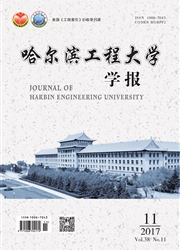

 中文摘要:
中文摘要:
企业的决策直接影响着市场价值和利益分配,因此解决决策过程中的矛盾和冲突、协调决策者的偏好和选择,是提高企业决策效率、保证会计信息的科学性和公允性、促进资本合理流动的关键.针对利益相关者在微观会计政策选择领域的合作竞争关系问题,采用进化博弈理论的方法分析利益相关者的决策过程发现,最终的策略选择受初始状态的影响,初始策略的选择取决于不同策略下的得益及潜在成本的大小,利益相关者将比较不同会计政策选择的经济后果,进行反复学习和调整.研究结果表明在惩罚成本和声誉损失较大的情况下,均衡点将稳定在风险优势策略的会计政策组合上,而该选择就是兼顾各方利益,并使企业价值最大化的均衡状态.
 英文摘要:
英文摘要:
Solving conflicts in the process of decision-making and coordinating decision-makers' preferences is vital to improving the efficiency of business decisions. To improve cooperative and competitive relationships among stakeholders participating in micro-accounting policy choices, evolutionary game theory was adopted to analyze stakeholders' decision making processes. Analysis showed that the final decision was influenced by the initial state, and the initial state decision depended on the balance between benefits and costs for different decision options. Stakeholders compared the economic results from different accounting choices and then studied and adjusted their position to make a final decision. The study showed that equilibrium will be achieved on an accounting policy portfolio of risk and profit optimizing strategies when potential liabilities, including loss of reputation, are huge. Each side's interests will then be considered so that the resulting Nash Equilibrium maximizes enterprise value.
 同期刊论文项目
同期刊论文项目
 同项目期刊论文
同项目期刊论文
 期刊信息
期刊信息
